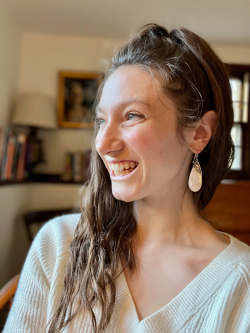Jessica Hester

Johns Hopkins University
‘From the burying ground down town’: Grave Robbing, Racial Politics, and Freedom Work in the Nineteenth-Century U.S.
Following a long tradition, nineteenth-century anatomy instructors and students at American medical schools often turned to grave robbing to collect bodies for dissection. While some scholars have examined “anatomy riots”—families and neighbors storming medical schools in protest after learning about local disinterments—the preponderance of scholarship on grave robbing for anatomical purposes suggests that thieves mainly plundered burial grounds of people they deemed unlikely to be missed, with residents only stirred to a frenzy when the people whose bodies had been stolen were renowned and white. This project, in contrast, demonstrates how the indignities of grave robbing catalyzed political and social action among diverse Black communities in Philadelphia and beyond. Families, friends, and neighbors of stolen Black people were keenly, agonizingly aware of the thefts, and crafted brilliant strategies to hold the perpetrators accountable, understanding these crimes to be entangled with the broader quest for civil rights.